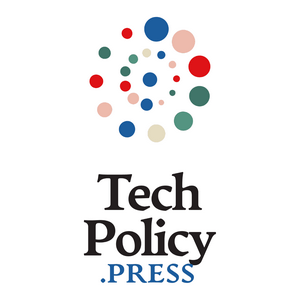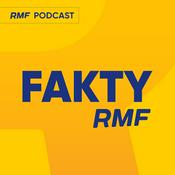350 odcinków

Through to Thriving: Insights from the Field
21.12.2025 | 32 min.
Tech Policy Press fellow Anika Collier Navaroli joined Justin Hendrix to discuss insights from her special 2025 series of podcasts, Through to Thriving. They discussed insights from her interviews over the course of the year with Ellen Pao, Jerrel Peterson, Alice Hunsberger, Vaishnavi J, Desmond Patton, Nora Benavidez, Mimi Ọnụọha, Timnit Gebru, Jasmine McNealy, Naomi Nix, and Chris Gilliard.

A Critical Look at Trump's AI Executive Order
14.12.2025 | 26 min.
On Thursday, US President Donald Trump invited reporters into the Oval Office to watch him sign an executive order intended to limit state regulation of artificial intelligence. Trump said AI is a strategic priority for the United States, and that there must be a central source of approval for the companies that develop it. Today's guest is Olivier Sylvain, a professor of law at Fordham Law School and a senior policy research fellow at the Knight First Amendment Institute at Columbia University. He's the author of "Why Trump’s AI EO Will be DOA in Court," a perspective published on Tech Policy Press.

Unpacking the Politics of the EU's €120M Fine of Musk’s X
07.12.2025 | 41 min.
On Friday, the European Commission fined Elon Musk’s X €120 million for breaching the Digital Services Act, delivering the first-ever non-compliance decision under the European Union’s flagship tech regulation. By Saturday, Elon Musk was calling for no less than the abolition of the EU. To discuss the enforcement action, the politics surrounding it, and a variety of other issues related to digital regulation in Europe, Justin Hendrix spoke to Joris van Hoboken, a professor at the Institute for Information Law (IViR) at the University of Amsterdam, and part of the core team of the Digital Services Act (DSA) Observatory.

Exploring Belief and Belonging in a Fractured Online Age
04.12.2025 | 51 min.
On this podcast, for years we’ve discussed issues such as conspiracy theories, mis- and disinformation, polarization, and the ways in which the design and incentives on today’s technology platforms exacerbate them. Today’s guest is Calum Lister Matheson, associate professor and chair of the Department of Communication at the University of Pittsburgh and a faculty member of the Pittsburgh Psychoanalytic Center. He's the author of Post-Weird: Fragmentation, Community, and the Decline of the Mainstream, a new book from Rutgers University Press that applies a different lens on the question as he searches for insights into the seemingly inexplicable behaviors of communities such as serpent handlers, pro-anorexia groups, believers in pseudoscience, and conspiracy theorists that deny the reality of gun violence in schools.

Considering Trust and Safety's Past, Present, and Future
30.11.2025 | 59 min.
The past few years have seen a great deal of introspection about a professional field which has come to be known as 'trust and safety,' comprised of the people who develop, oversee, and enforce social media policies and community guidelines. Many scholars and advocates describe it as having reached a turning point, mostly for the worst. Joining Tech Policy Press contributing editor Dean Jackson to discuss the evolution of trust and safety—not coincidentally, the title of their forthcoming article In the Emory Law Journal—are professors of law Danielle Keats Citron and Ari Ezra Waldman. Also joining the conversation is Jeff Allen, the chief research officer at the Integrity Institute, a nonprofit whose membership is composed of trust and safety industry professionals.
Więcej Wiadomości podcastów
Trendy w podcaście Wiadomości
O The Tech Policy Press Podcast
Słuchaj The Tech Policy Press Podcast, Układ Otwarty. Igor Janke zaprasza i wielu innych podcastów z całego świata dzięki aplikacji radio.pl

Uzyskaj bezpłatną aplikację radio.pl
- Stacje i podcasty do zakładek
- Strumieniuj przez Wi-Fi lub Bluetooth
- Obsługuje Carplay & Android Auto
- Jeszcze więcej funkcjonalności
Uzyskaj bezpłatną aplikację radio.pl
- Stacje i podcasty do zakładek
- Strumieniuj przez Wi-Fi lub Bluetooth
- Obsługuje Carplay & Android Auto
- Jeszcze więcej funkcjonalności


The Tech Policy Press Podcast
pobierz aplikację,
zacznij słuchać.



































